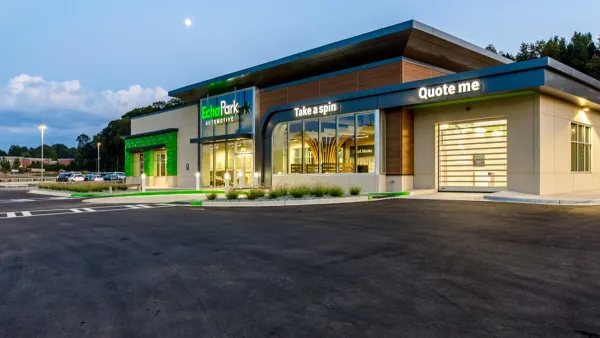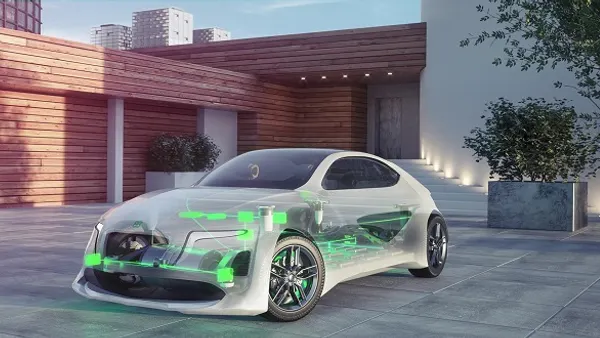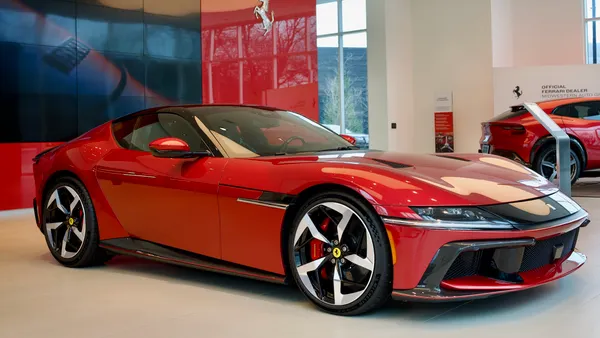Editor's note: This story is part of the WardsAuto digital archive, which may include content that was first published in print, or in different web layouts.
SEOUL, Korea - Chairman Tae-Gou Kim got a divorce from General Motors five years ago and has worked tirelessly since then to establish his free-standing Daewoo Motor Co. Ltd. as one of the world's Top 10 automakers.
It may seem like quite a stretch to some, yet since 1992, Mr. Kim has led Daewoo Motor through an amazing metamorphosis and is getting very close to achieving his goal.
Today, Mr. Kim says, Daewoo process and vehicle quality are neck and neck with the major Japanese players, and he is pushing for a world-class 20 ppm defect rate within the next two years. Daewoo has also become a major global player since the break with GM, establishing 13 offshore vehicle assembly plants in 12 overseas nations.
Mr. Kim and his 25,000 employees have increased their Korean domestic passenger car capacity from just under 400,000 units to slightly more than 1 million in the five-year timeframe. All-new overseas capacity has been established since the GM split for 485,000 passenger cars and 107,500 trucks and commercial vehicles; 597,500 total vehicles, produced in 12 nations.
Current strategy calls for total offshore vehicle capacity to increase by nearly another million units to 1.5 million by the year 2000. The target includes more than 1.2 million passenger cars and more than 250,000 light, medium and heavy commercial vehicles.
Domestic passenger car sales have risen only slightly in the past four years, from 251,616 units in 1993 to 278,714 in 1996, reflecting Korea's sluggish economy.
However, export sales have increased from 108,086 in 1993 to 347,734 last year, plus additional knocked-down export sales of 118,119 units in 1996. Total 1996 sales for domestic and direct and KD export were 771,286 units.
This volume uses all of Daewoo's pre-1997 domestic capacity, which was buoyed by 300,000 units this January, with the beginning of passenger car assembly at the greatly expanded Kunsan complex. (Kunsan previously was dedicated to trucks).
Total sales revenue (including original equipment and aftermarket parts sales) for domestic and export markets has climbed from $3.5 billion in 1994 to $7.9 billion last year. The projection for 1997 is $11.7 billion.
In the past four years, Daewoo also has opened its Production Engineering Center, Bus Technical Center, Truck Technical Center, the Institute for Advanced Engineering and its Seoul Design Forum.
In 1994 Daewoo acquired the Worthing Technical Center in England, which specializes in styling, design and new car platform development. The following year it established Daewoo Motor Engineering GmbH in Frankfurt, which develops powertrains. And next year, it plans to establish a technical center somewhere in the Detroit area.
Daewoo's Korean assembly plants are among the most advanced in the world, buttressed by highly automated, computerized processing systems developed by Daewoo Heavy Industries Ltd. and Daewoo Precision Industries, Ltd. The body lines, for instance, are 95% automated.
At the main plant in the Inchon suburb of Pupyong, where Mr. Kim holds out in his fifth-floor office adjacent to the Daewoo Technical Center, the twin assembly lines operate on double shifts at a steady rate of 60 vehicles per hour.
The plant produces a mix of eight different nameplates, destined for domestic delivery and export to more than 150 nations.
Mr. Kim spends considerable time in the plants and is known by face to all employees. He works at least one day every year on the assembly line, and despite market ups and downs he has personally directed that no Daewoo worker ever be put on layoff.
Proof of Daewoo's new advanced technological muscle is seen in its latest new product achievements.
Daewoo simultaneously designed, developed and brought to market in a timeframe of just 30 months three totally new car models: the subcompact Lanos, compact Nubira and midsize Leganza.
When it bowed in April, Leganza sold 17,000 units in a single day, gaining Daewoo Motor an official entry in the Korean Guiness Book of Records.
The new trio already have been introduced in Europe where Daewoo participated for the first time this year in the Frankfurt Auto Show, showing 16 cars that represented all 11 of Daewoo's lines. The three new models come to the U.S. this spring.
Chairman Kim has made consumer driving evaluations a major part of the Daewoo marketing plan. He hopes the American experience will enable him to eliminate the "cheap car" notion for all time, by proving to consumers that Daewoo's offerings are as good as they come in their price range.
With this in mind, all Daewoo dealerships, both company-owned stores and franchisees, will turn over a new Daewoo to potential customers to "try out at home" for one week, with no strings attached.
Customers will be able to buy through Daewoo stores, through franchised dealers, from dockside port-of-entry facilities, by mail, and through their PC keyboards over the Internet. Daewoo also is holding retail agency discussions with K-Mart, so perhaps customers will be able to order a new Daewoo Lanos at the same time they buy shoes, shampoo or hand tools.









